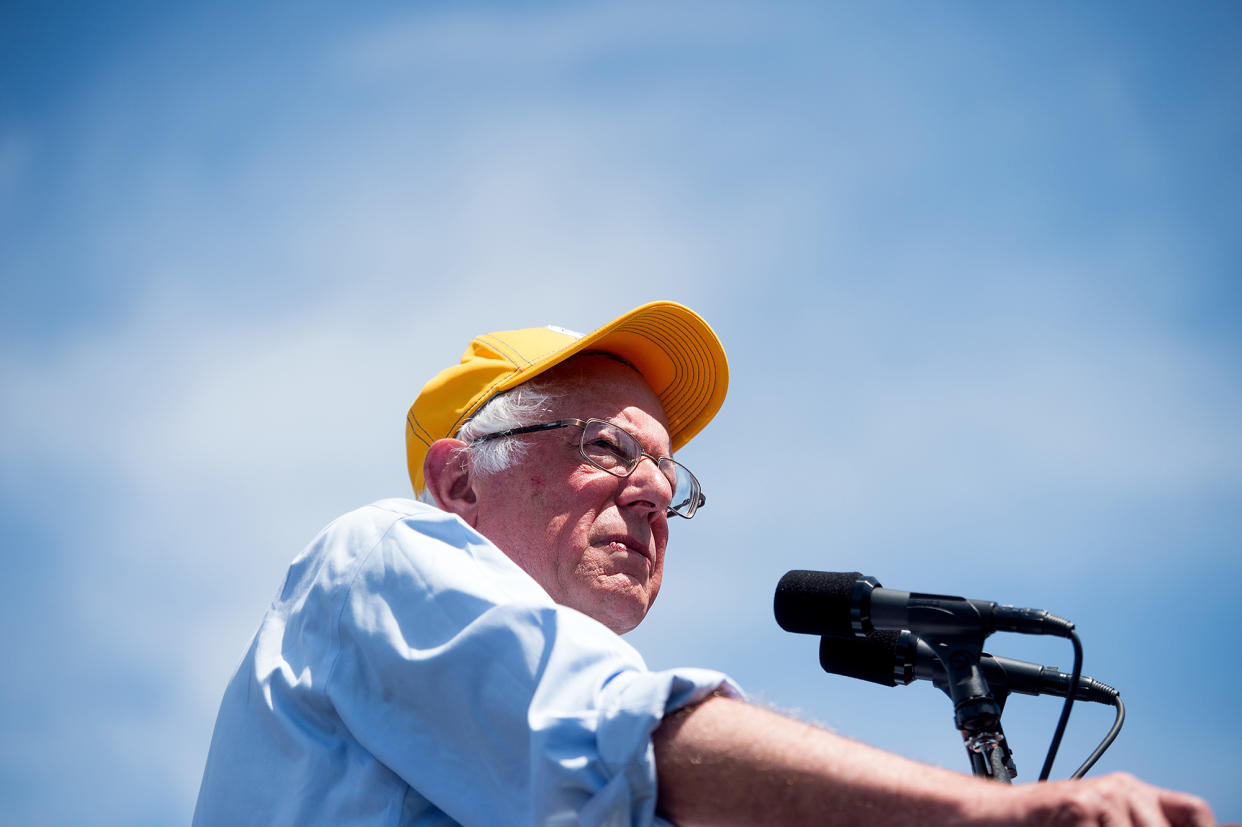Sanders faces tough decision as Clinton locks up nomination

LOS ANGELES — Sen. Bernie Sanders doesn’t have a lot of good options.
On Monday, ahead of primaries in California and five other states, several media outlets called the Democratic primary for his rival, Hillary Clinton, based on the commitments of new superdelegates that put her over the 2,838 delegates needed to win the nomination. (Today’s contests will put her even further over the top.) The day before, the Vermont senator fielded a call from President Barack Obama, who reportedly praised how he’s handled his campaign but informed him he’d shortly be endorsing Clinton to unite the party for the general election.
At this time eight years ago, Clinton conceded to her rival, Barack Obama, after winning California but confronting the reality that Obama had secured enough delegates to clinch the nomination. Sanders has stressed he will not concede before the convention in late July. He is scheduled to speak tonight at an event in Santa Monica a few hours after the California polls close, which will be in the middle of the night on the East Coast.
As recently as Saturday, Sanders told the media that the Democratic National Convention in July will be “contested,” and his spokesman said Monday that “our job from now until the convention” is to try to win over superdelegates to back Sanders. Top Sanders surrogates say they are furious that the media declared Clinton the winner before California voted. Sanders’ wife Jane tweeted that the Associated Press had “crossed the line” in releasing their delegate count.
AP crossed the line – https://t.co/XFQDdkOjJg
— Jane O'Meara Sanders (@janeosanders) June 7, 2016
At a rally in San Francisco attended by more than 10,000 people last night, Sanders slammed Clinton for her ties to Wall Street and super-PACs, and urged his supporters to flood the polls Tuesday — not the rhetoric of a candidate finding it easy to confront the end of his campaign. Many of his supporters, too, believe that the nominating process has been stacked against them and feel angry at the Democratic establishment.
But if Sanders does spend the next six weeks lobbying superdelegates to flip their votes, he puts himself in the awkward position of being a populist candidate who will spend the final weeks of his campaign convincing the Democratic elite to vote against the majority of Democratic primary voters. Clinton leads him by 4 million votes, and also leads him in the pledged delegate count. Since the creation of the superdelegate system in the 1980s, no candidate has ever won the backing of superdelegates (who make up 15 percent of all delegates) without also winning a majority of pledged delegates.
Clinton has also made it clear that she will celebrate the moment she clinches the nomination as a historic watershed for all women. She told reporters Monday that she thinks the moment will mean parents can look at their daughters as well as their sons and say, “You can be anything you want to be in this country.” If Sanders continues to lobby superdelegates to swing to him after Clinton has locked up enough delegates to win, it could appear like he is stepping on that moment.
Sanders has said he wants to radically change the Democratic nominating process at July’s convention to make it easier for independents to vote in future contests and to eliminate superdelegates. He said Saturday the delegate system now is like an “anointment” process, since they can choose whom to support before the election even begins. Sanders has already won a key concession from the DNC — the inclusion of more Sanders supporters in the platform committee — which likely means more of Sanders’ policy concerns will be included in the party platform. And it seems likely he will make some headway in reforming the nomination process itself, a trade Clinton and the DNC could make in order to win over Sanders’ passionate supporters and bring them into fold.
It’s clear at least one of the Democratic rivals is ready for that. “We will come together and be prepared to go to the convention in a unified way,” Clinton said on CNN last weekend.

